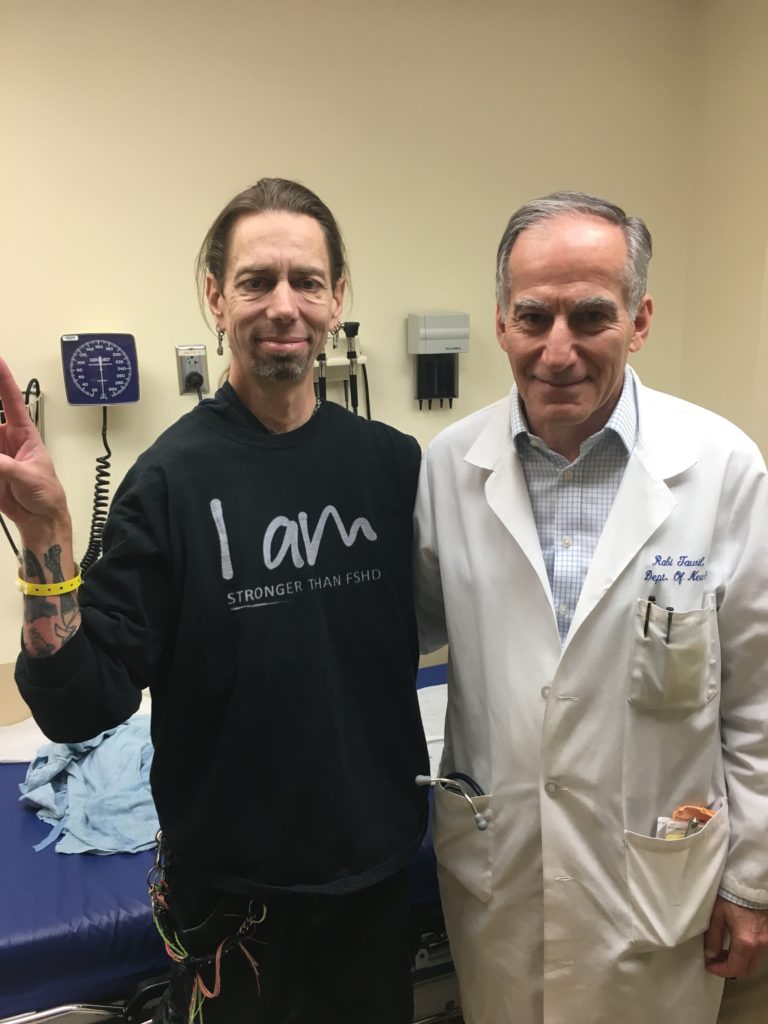
To crack the code of FSHD, patients are absolutely essential
All of the breakthroughs—the discovery of the genetic causes, understanding why some patients vary so greatly in the severity of their symptoms, teasing out the biochemical pathways that could point to future treatments—were made because patients stepped up to the plate.
Too often, we hear patients say they’ll volunteer when there’s a treatment. But we will never get to a treatment unless patients participate in fundamental research now. FSHD is uniquely human, so no laboratory mouse can ever fully model the disease. The genetic “package” that causes FSHD is found only in people. We owe an enormous debt to the patients who give DNA samples. Who submit to long interviews and exhausting physical tests. Allow a surgeon to cut out a small muscle sample. Who fight claustrophobia to lie in the narrow bore of an MRI machine.
Equally important are patients’ family members, both affected and unaffected, who provide the best experimental controls because of their shared genetic and environmental backgrounds. A parent or sibling who has very mild symptoms may hold the key to understanding the factors that protect against the full-blown development of FSHD symptoms in a more severely affected family member.
We are more hopeful today than ever before that a treatment is within sight. We cannot guarantee when that treatment will arrive, but here’s one thing we guarantee: If you volunteer for research, your participation will without question help move us a step closer to that day.
Scientific Overview of FSHD
Read the latest on wikipedia
Glossary of Scientific Terms
Webinar with Stephen Tapscott MD PhD (video)
From our webinar on November 7, 2018. Dr. Tapscott, one of the world’s leading scientists working on the fundamental understanding of FSH muscular dystrophy, updates us on our understanding of… Read More »
High-intensity exercise training in FSHD
by Amanda Hill If you or a loved one is affected by FSHD, or any muscular dystrophy for that matter, chances are that you’ve heard it’s best not to exercise,… Read More »
DUX4 vs. PAX7–Who’s the fairest one of all?
by Amanda Hill For several years, DUX4 has enjoyed center stage in the yet-unfolding story of facioscapulohumeral muscular dystrophy (FSHD). DUX4 was first identified in 19991, but only in the… Read More »
FSH Society latest grant awards
By Daniel Paul Perez & June Kinoshita One of the blue-sky dreams for those of us working toward treatments for FSH muscular dystrophy is regenerative therapy—treatments to generate healthy muscles… Read More »






